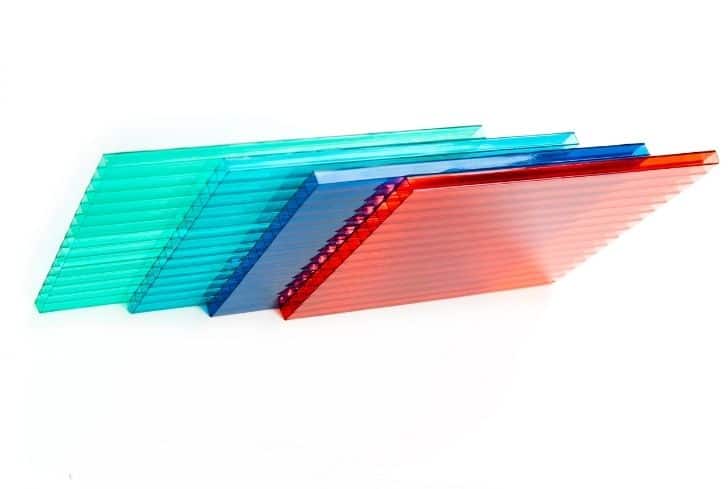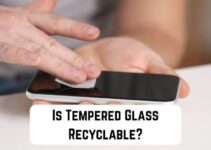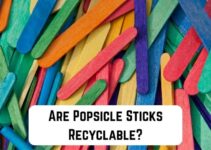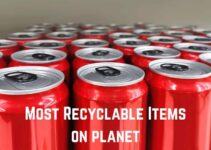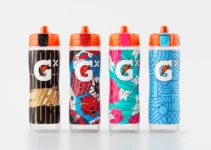Polycarbonate is everywhere. It is fast becoming one of the most versatile materials in the world. Manufacturers from various industries, be it agriculture, food, security, or many others, now use them for an extensive range of things.
For instance, we bet you didn’t know that items like your mobile phones, computer casings, water bottles, and many other household items are made from polycarbonate or have polycarbonate components in them. That is just how versatile they are.
And while this versatility is a good thing, there’s one major concern that springs up from this ubiquitous material — the correct way to dispose of it!
Sure, polycarbonate is one of the most durable materials. In fact, probably it’s on account of its durability that it’s been one of the favorite materials for use in a plethora of items.
But then, even with the impressive lifespan, polycarbonate items still eventually come to their lifespan end, leaving you with no option but to get rid of them.
When that happens, how you dispose of polycarbonate items really matters a lot. Considering their widespread usage, polycarbonate items should be properly disposed of, otherwise, they can become a major environmental problem.
So, how do you get rid of this material? Can polycarbonate be recycled?
Well, if these are the questions racing in your mind, this article has all the answers you’re looking for. Read on for everything you need to know about this material!
Can you Recycle Polycarbonate?
You can recycle your items that contain polycarbonate or that are entirely made from polycarbonate. In fact unlike some plastic materials that depreciate in value when melted, polycarbonate can get to its melting point without losing its value, making it more well-suited for recycling than most other plastics.
Before we dig deep, let’s put the record straight — Polycarbonate is made from plastic. Therefore, you can say it is a special type of plastic that allows for versatility.
The material can be compared to glass in that they are both translucent. The only difference? Polycarbonate is mostly made from plastic while glass is made from sand.
Polycarbonate is a lightweight translucent type of plastic, a great favorite material in the manufacture of different things. So, of course, you would have to dispose of some of these items at one point or the other.
And thankfully, you don’t need to send your polycarbonate-made items to landfills alongside general trash, reason being that this material is recyclabe!
That’s right — you can recycle Polycarbonate, just like other plastics.
In fact, it’s even better suited for recycling than most plastics.
You see, when most plastics are heated to their melting point, a chemical reaction is activated, which makes it impossible for these plastics to be reshaped or reused. At this melting point, they become entirely useless.
However, polycarbonate stands out. When polycarbonate is heated to its melting point, it melts to a liquid form which can be shaped into a new object. The endgame of recycling is to make new items out of our old ones, and polycarbonate fits directly into that description.
So when next you have a couple of polycarbonate items to dispose of, don’t hesitate to march down to your local recycling center to have it done there. You may also use a recycling locator to find the one closest to you.

Is Polycarbonate Biodegradable?
Polycarbonate is made from plastic, and like most plastics, it is not biodegradable. That’s why you should consider recycling it instead, because sendign it to landfills will mean causing more harm to the environment.
For biodegradation to occur, an item has to be susceptible to decomposition by microorganisms. But being a plastic, Polycarbonate just isn’t one of the materials that will go down through a microbial activity.
That’s why you should consider alternative methods of disposal than tossing it in your trash bin. When binned, polycarbonate items will end up at landfills and take several decades to get broken down into smaller pieces, what we call microplastics.
Even when this happens, they never entirely go away. They remain as tiny particles which can be pretty harmful to the environment. So please, ensure that you dispose of your polycarbonate items properly, preferably by recycling them.
Is Polycarbonate Environmentally Friendly?
Polycabornate is relatively environmentally friendly. It certainly checks off some of the requirements for environmentally friendly materials. For instance, it is highly sustainable, in the aspect that it can be heated to its melting point and reshaped and repurposed.
This is an excellent attribute because it means that we can recycle our polycarbonate items for as many times as we want without the fear of depreciating quality.
That’s unlike some plastics cannot be recycled and have to be thrown into the bin. So what happens here is that the binned plastic ends up in landfills and doesn’t get completely broken down.
Before plastics get decomposed, it takes a very long time, sometimes several decades. It gets even worse because the slow decomposition process results in releasing some harmful toxins into the atmosphere. Thus, these plastics not only cause environmental pollution but also pollute the atmosphere.
The upside is that we can recycle polycarbonate, so it doesn’t need to go through this process. We can recycle it over and over again; it was deliberately engineered that way.
Now, here’s something else to note when deciding if a material is environmentally friendly. Does the production process result in environmental pollution? For example, some materials require rigorous manufacturing processes, which in turn would require excessive fuel consumption.
Of course, burning fuel means that smoke and other toxic gases would be released into the environment. In addition, the waste chemicals that remain from the manufacturing process most times aren’t disposed of properly too, so these factors end up polluting our environment.
Well, we can say that since polycarbonate meets the sustainability test, it is environmentally friendly. Also, since we can recycle it, production occurs only occasionally, so we don’t have to worry about constant environmental pollution.
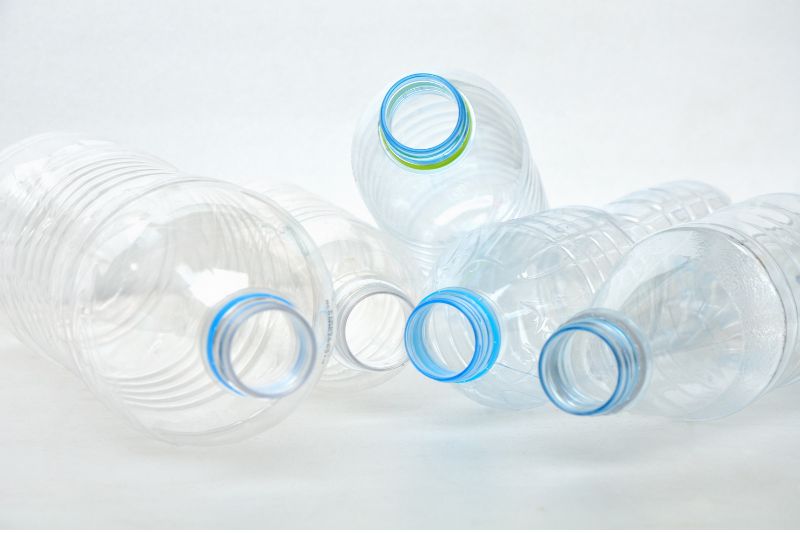
Is Polycarbonate Toxic?
Whether polycarbonate is toxic depends with the BPA levels in it. Polycarbonate is safe when the BPA levels used in manufacturing it is low. When it is low, it can cause little to no harm to you. However, you may choose to opt for items that are BPA-free.
BPA is a chemical that manufacturers use to make plastics, and this could include Polycarbonate items. Of course, it is a harmful chemical and should never come into contact with our food.
Luckily, manufacturers now refrain from using this chemical for items that we bring in contact with our food and drinks. You have to be careful, though, because not all manufacturers are conscious of this.
If you absolutely have to use polycarbonate items, you can help yourself by refraining from heating them if they will end up coming in contact with your mouth or internal organs.
Aside from the BPA, polycarbonate, like every other plastic, can be toxic to the environment if left untended or disposed of wrongly. It’s made from plastic, and plastic can be pretty harmful to the environment.
So even though polycarbonate was designed to be highly sustainable, if it is not disposed of properly, we may be harming our environment in the long run.
What Can You Do With Polycarbonate?
Polycarbonate is the perfect recyclable material. In fact, it is always quite welcome at recycling centers because its value does not reduce even when it has been recycled repeatedly.
However, there are also other environmentally friendly options for disposing of these materials. We are confident that you will have the time of your life trying out the hacks we have for you. Don’t hesitate to get creative.
1. CD Coasters
We bet you didn’t know that CDs are made from polycarbonate. Well, now you know, and here’s a mind-blowing hack for your old CDs.
You can turn your old CDs into coasters. You would need a glue gun, soft and light fabric and a pair of scissors to shape the fabric. It’s a fun and relatively easy hack, and you would enjoy every moment of it.
These coasters also make great gift items, so don’t hesitate to gift them to your family and friends.
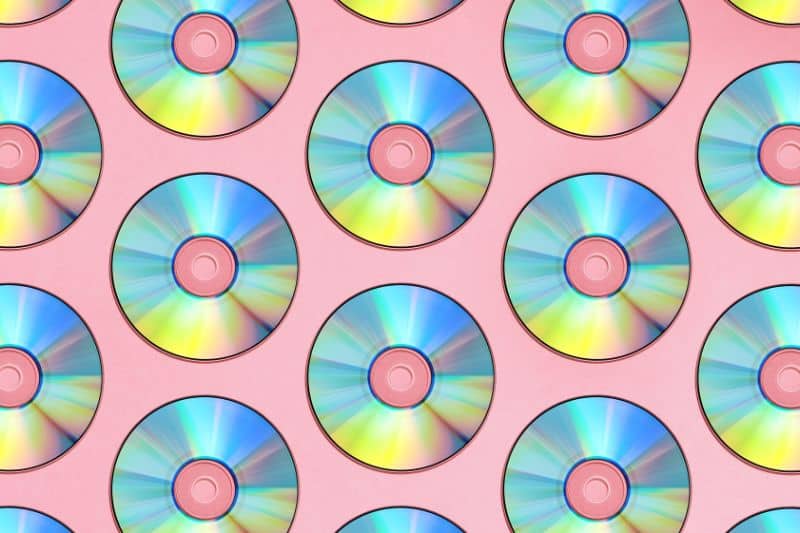
2. Homemade Decorative Tiles
You can cut your old CDs into uneven pieces and attach them to surfaces in your house. It’s an awesome decorative hack that helps you get rid of unwanted CDs without harming your environment.
It would help if you had a pair of string scissors and a glue gun for this hack. Be sure to leave the shiny part of the CDs facing up. That’s the fascinating thing about this particular hack. You can attach the pieces to tables, picture frames and even door frames.
3. Garden Markers
The option of cutting your old water bottles into even shapes and sizes to use as garden markers is always there. It would be best to have a pair of strong scissors, some paint and a sharpie to label the markers.
Again, this is also a fantastic gift idea. If you don’t have a garden, surely you have a couple of friends who do. You can cut up these bottles and give your friends. Just be sure to leave the garden markers unlabeled and let them handle it themselves.
4. Flower Pots
Flowers are lovely ornaments. The best part is that you can plant them anywhere, give them a good supply of air, sunlight and water, and they will blossom. Of course, you can also transplant them, which is where your old polycarbonate bottle comes in.
You can cut these bottles into the sizes you desire, add some loamy soil and plant your flower buds in them. You can take this hack a step further by hanging these pots at systematic places in your house. They have a rustic feel to them, and everyone would commend you for it.
5. Greenhouse
Greenhouses are usually made from polycarbonate. Now, if you have a couple of polycarbonate windows in your house and are looking to upgrade or simply change them, then you can transform them into a greenhouse instead. However, if you are not handy with tools, you would need the help of a handyman.

6. Donate Them
You can choose to donate items like computer casings, polycarbonate water bottles, food containers, and other items you don’t want anymore. You never have to worry about not getting anyone to take them off your hands because people would always need these things.
That you have grown out of them and need a change doesn’t mean others do too. So be on the lookout for friends, family or even random strangers that may require the items you are looking to dispose of.
Conclusion
The extreme versatility of polycarbonate means that we simply cannot do without them. Therefore, it won’t come as a surprise to find that we have many items made from polycarbonate in our households. For this reason, it is only logical that we find ways to dispose of them properly.
You can recycle polycarbonate items and resort to recycling only after trying out the awesome repurpose ideas we have cooked up for you. So please read up, and stay informed.
References:
https://www.creativemechanisms.com/blog/everything-you-need-to-know-about-polycarbonate-pc
